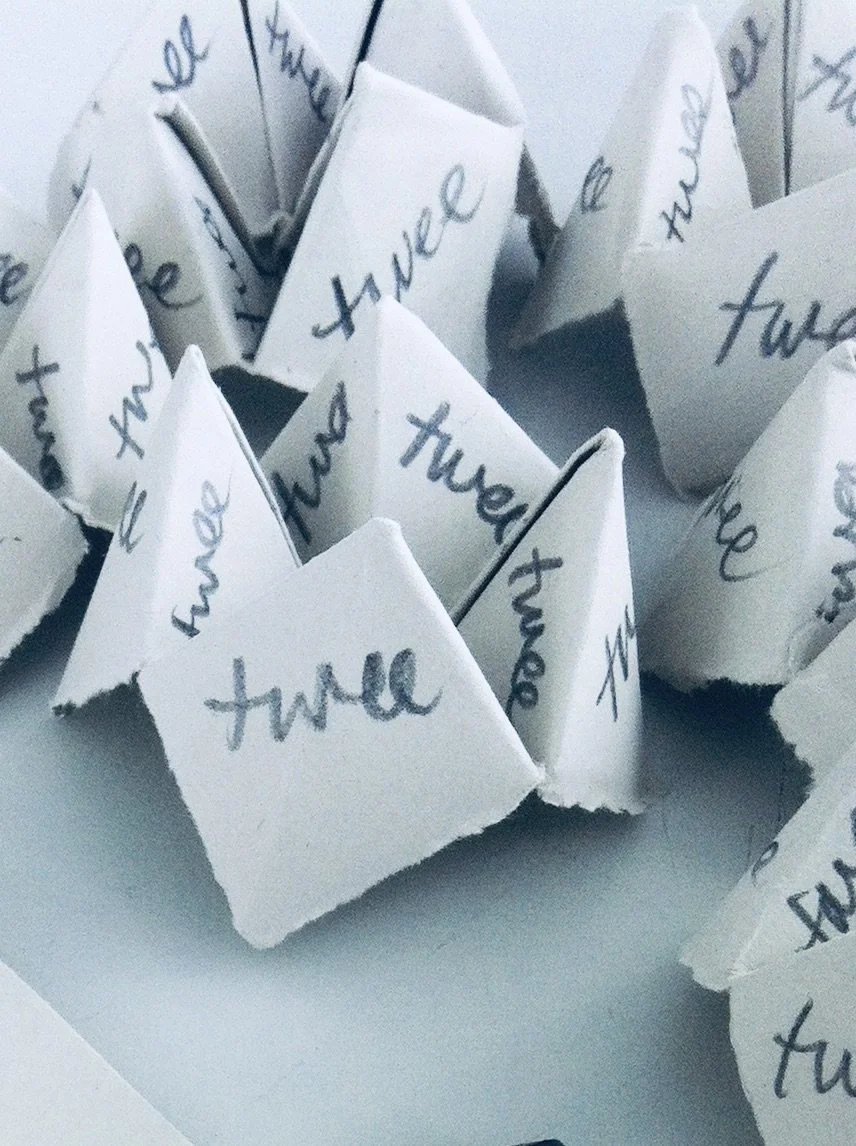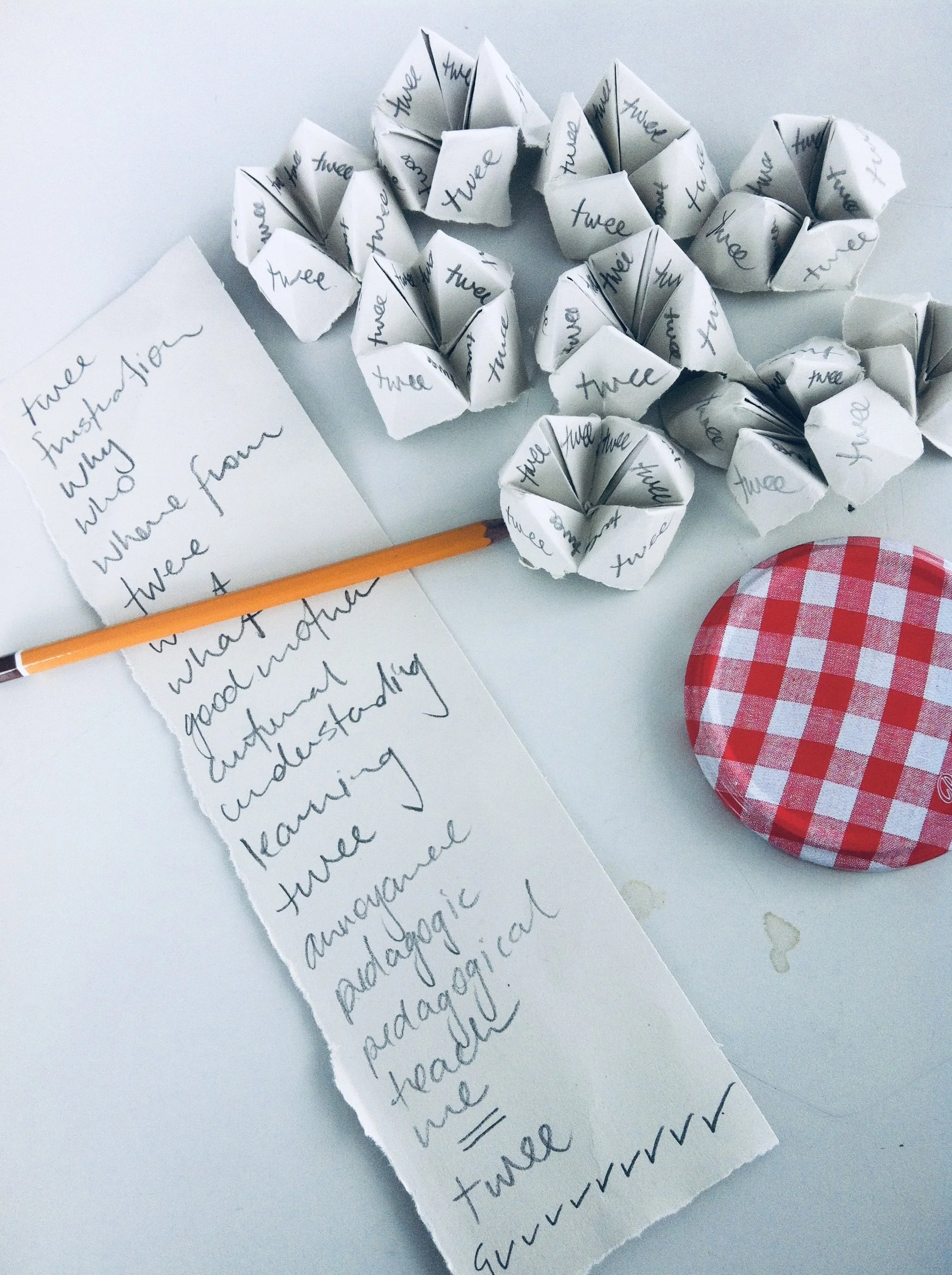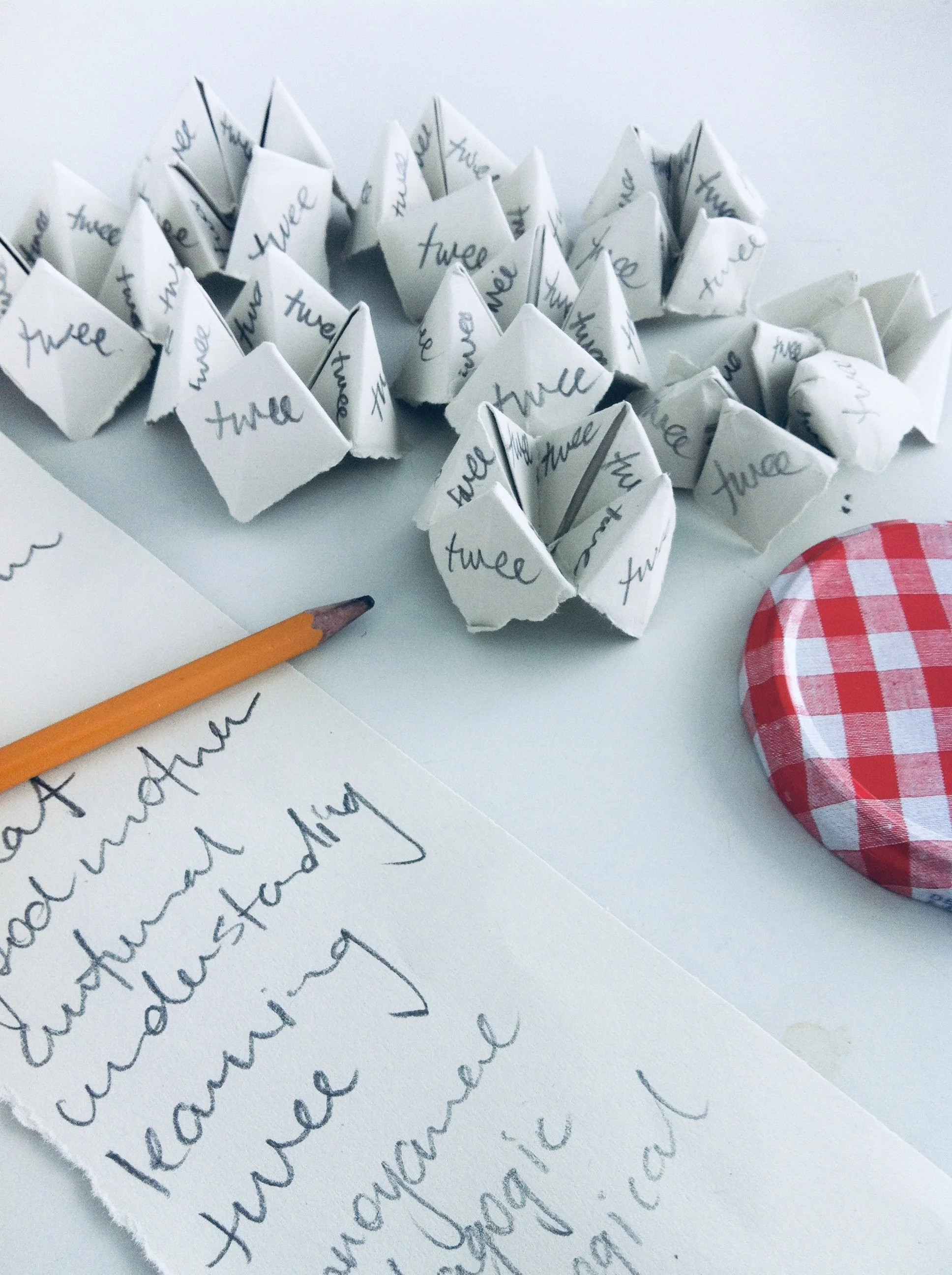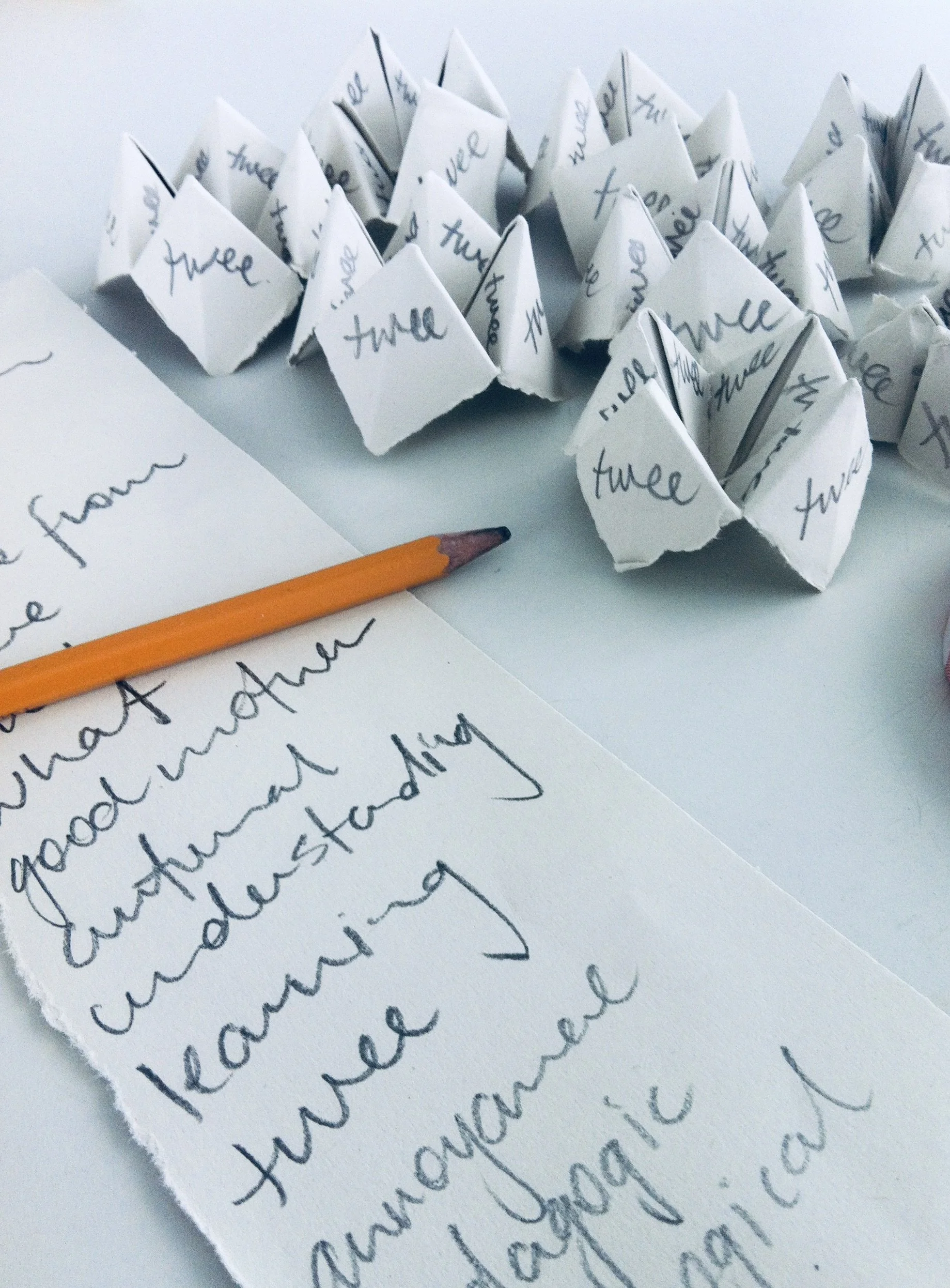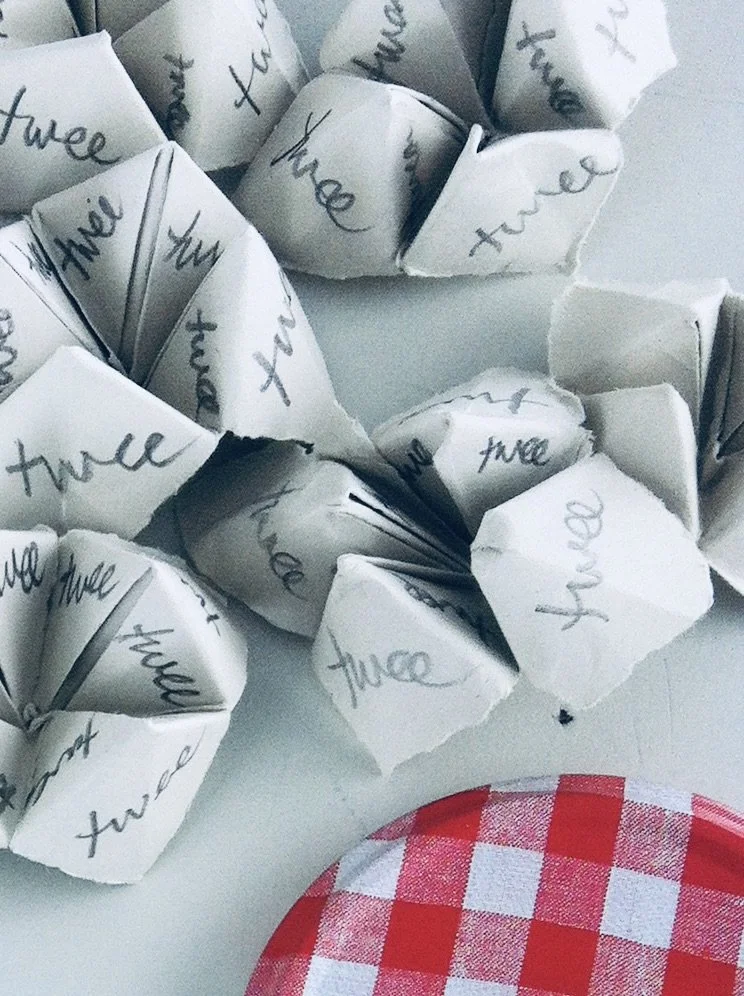twee. a minor gesture
It began with gingham. Red and white, checkered lid, ordinary- a surface saturated with domestic nostalgia. The kind of object that sits on the edge of sweetness and suffocation, affection and irritation. As Sara Ahmed reminds us, objects carry affective histories; they gather the stickiness of past encounters, the sediment of cultural pulls, familial gestures, and habitual touch. This lid was no exception. It became, unexpectedly, a material irritant- too quaint, too staged, too twee.
In response, I folded paper. Not just one, but many. The fortune tellers of childhood- multiplied across the space, each one inscribed with the word twee, again and again. This was not a project of resolution or clarity. It was an act of accumulation, a practice of excess. Erin Manning’s notion of the minor gesture helps here: the idea that small, intra-actions can shift the texture of a space, the tone of a moment, without fixing or finalising its tensions. These folds, these repetitions, were minor gestures- not designed to confront or dismantle the gingham’s nostalgic pull, but to sit with it, amplify it, extend it into playful-irritating-poetic clutter.
I ask: How might minor gestures enact feminist pedagogical knowledge? What does it mean to stay with the affective stickiness of materials and words without seeking resolution or clarity? My intention was not to create a resolved critique or a closed artwork but to explore a methodology of feminist irritation: a way of knowing and making with discomfort, repetition, and minor acts of material engagement.
Language emerged in loose, handwritten lines across torn paper: frustration, why, who, where from, good mother, emotional, understanding, learning, annoyance, pedagogic, pedagogical, teach me. These are not neutral words. They are affective triggers, conceptual markers, and relational echoes.
Together, they map a terrain of pedagogical entanglement- the sticky, unresolved space of teaching, learning, becoming. Sara Ahmed’s work on affect allows me to hold this stickiness without smoothing it out: material forms, language, and feeling catch on each other, making certain dynamics (care, frustration, expectation, demand) intimate and heavy.
This practice- folding, writing, arranging, occupies a space between critique and craft, between play and theoretical weight. It is a feminist-materialist intervention that resists the drive to tidy up, categorise, and pin down. Instead, it lingers in the mess, the too-muchness, the minor excesses that speak to something larger.
The gingham lid provoked, the folded fortune tellers responded, and the scattered words stayed close. Together, they form a relational assemblage, an enactment of how the everyday, the trivial, the sentimental, the overlooked, carries conceptual and affective force.
This is the space I am interested in: the between- between the nostalgic and the annoying, between the personal and the theoretical, between the object and the gesture, between irritation and affection. It is not a space to resolve but to inhabit. A space where feminist thought, material practice, and minor gestures can move together, creating something both slight and sharp, both playful and unsettling.
T. Page. (2023). twee. a minor gesture. [installation-text]. DOI: https://doi.org/10.17613/2wk7b-qpk33
